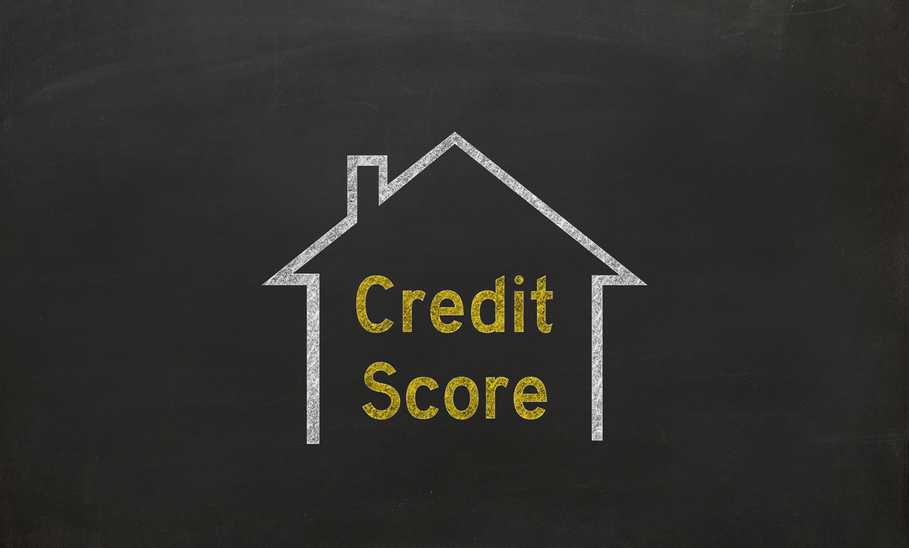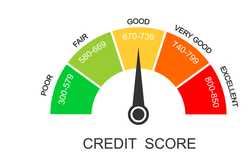Which Credit Score Do Mortgage Lenders Use?


Our evaluations and opinions are not influenced by our advertising relationships, but we may earn a commission from our partners’ links. This content is created by TIME Stamped, under TIME’s direction and produced in accordance with TIME’s editorial guidelines and overseen by TIME’s editorial staff. Learn more about it.
When you are applying for a mortgage to buy a home, lenders will typically look at all of your credit history reports from the three major credit bureaus – Experian, Equifax, and TransUnion. In most cases, mortgage lenders will look at your FICO score.
There are different FICO scoring models. It’s important to understand which credit score model lenders use so that you can meet the minimum requirements for approval.


Lenders will look at your FICO score when reviewing your mortgage application. It is, by far, the scoring model lenders use most.
Although they are all called a FICO score, the credit scoring company that produces FICO created different scoring models for Experian, Equifax, and TransUnion, as well as models for different types of scoring purposes. For instance, mortgage lenders tend to use different scoring models than those used for general lending decisions, such as credit cards.
While most lenders use the FICO Score 8, mortgage lenders use the following scores:
There are different models because FICO tailors them to help predict how creditworthy you are based on different lending products or industries. Of course, your score is still calculated on the same factors for all FICO scores, which include:
Different scoring models weigh these same factors differently.
When mortgage or home loan companies request your credit reports, the loan company will receive a single document that will outline information from all three credit bureaus, including your FICO scores. If the scores are different, the company may use the middle one, or the lower-middle one if you are applying for a mortgage with your spouse or partner.
There may be exceptions. Some mortgage lenders, such as Fannie Mae or Freddie Mac, use different scoring models. There may also be home loans where you will not be required to provide your credit history or credit score. Until you know what kind of loan you may qualify for, it’s best to understand what your credit score is, and work on improving it (if your score is low) to increase your odds of getting approved.
Lenders look at your credit score to determine your risk as a borrower. In general, the higher your credit score, the more creditworthy you are and the more likely you are to pay back loans on time.
On the flip side, a lower score could mean that you haven’t been consistent with paying back loans on time, or at all. In this case your risk as a borrower is higher. This increased risk as a borrower means your mortgage interest rates are most likely going to go up.
According to FICO as of March 2022, someone with at least a 760 credit score could have an APR of an average of 6.539%, compared to 8.128% for those with a credit score of 620. This percentage difference can cost or save you tens of thousands of dollars through the life of your loan.
Keep in mind that lenders don’t just look at your credit scores. Lenders will look into your credit history in more detail and could deny your application or offer higher interest rates if you’ve had a previous negative remark, such as a foreclosure or if you owe debt to collection agencies. Other factors lenders will look at include your down payment, loan amount, and the home’s location.
You can monitor your credit reports through any of the three credit bureaus. You can request a free credit report each year — some often offer free monitoring — through AnnualCreditReport.com.
It may be worth considering signing up for a paid service that monitors all three credit bureaus and provides more detailed information than what you would get from the free services. A good option is MyFICO. You don’t necessarily have to sign up for long. You can do so for a few months while you’re preparing to apply for a mortgage.
Putting your best financial foot forward will increase your chances of getting approved for a loan, and at more favorable rates and terms.
To improve your credit score, first look at your credit history reports to see if there are any indicators that are negatively affecting your score. Focus on those negative indicators first, especially the factors that weigh more heavily than others. If there are any errors, contact the relevant credit bureau to dispute them.
Other ways you can improve your credit score include:
Mortgage lenders also look at factors such as your debt-to-income ratio, down payment, assets, income, and any negative remarks on your credit report when determining mortgage terms.
Mortgage lenders have different minimum credit score requirements. Different mortgage types will also affect the credit score you need. In most cases, government-backed home loans like FHA and VA loans require a lower credit score (usually 580), compared to conventional loans (usually 620). Even though you may meet the minimum credit score, in many cases you may find that lenders will only offer the best rates to those with high scores.
Most lenders use the FICO credit score when assessing your creditworthiness for a loan. According to FICO, 90% of the top lenders use FICO credit scores.
The information presented here is created by TIME Stamped and overseen by TIME editorial staff. To learn more, see our About Us page.



